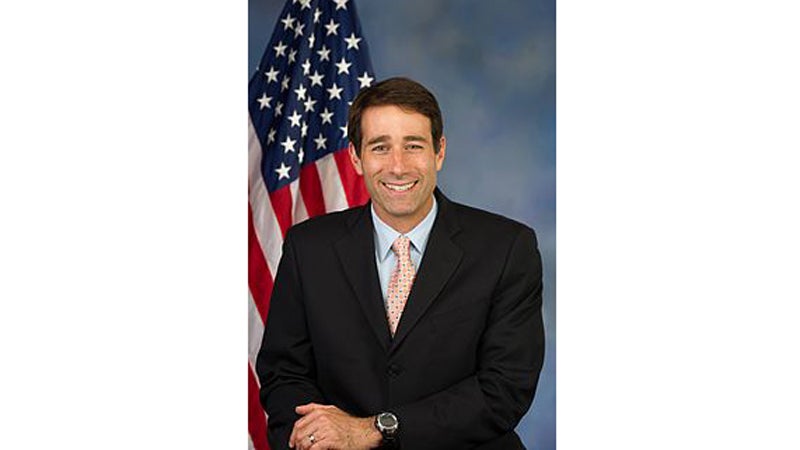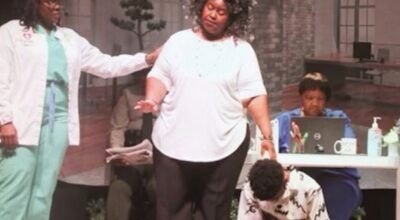CARES Act gives economic lifeline to residents and businesses
Published 12:05 am Wednesday, April 1, 2020
|
Getting your Trinity Audio player ready...
|
LAPLACE — A bill recently passed into law gives people in St. John the Baptist Parish and across Louisiana a lifeline to help navigate a depressed economy in the wake of the devastating COVID-19 outbreak.
Congressman Garret Graves (R-Louisiana) sat down with Parish President Jaclyn Hotard to explain how the CARES Act helps residents in three essential areas: payroll protection plans for small businesses, expanded unemployment assistance, and $1,200 IRS tax credits that could be issued as soon as this week.
Self-employed individuals/ those with a 1099 tax form are now eligible to receive unemployment assistance under the new guidelines. According to Graves, the expanded eligibility also covers local government, state government and not-for-profit employees who were previously ineligible for assistance.
Residents in need can now receive assistance in the first week after filing for unemployment, according to Graves. The expanded program increases the availability of funds with a $600 per week supplement and extends the unemployment insurance period for an additional 13 weeks.
For more information on unemployment assistance, please visit the Louisiana Workforce Commission at laworks.net.
“The most important thing I think all of us want is for folks to not lose their jobs, so there are a lot of generous provisions in there to help the employers make it through this tough time and keep paying those employees while we’re going through this dip in the economy,” Graves said.
A payroll protection program is being offered to small business owners in the form of a new, partially forgivable Small Business Administration loan. The low-interest loan, which may be extended for up to 10 years, can be originated at any federally insured bank or credit union.
“Most importantly, payroll costs, which include retirement and healthcare, rental payments, mortgage interest costs and utilities, are all forgivable parts of the loan,” Graves said.
For example, someone who takes out a $150,000 loan but uses $120,000 on payroll, healthcare, mortgage interest and utilities will only have to pay back $30,000. More information is available at sba.gov.
“I urge you, work with your local bankers, and make sure that you are asking for the new 7-A forgivable loan that was just signed into law on Friday last week,” Graves.
Small business owners may be eligible for either the low interest loans or unemployment assistance but will not be eligible to receive both benefits.
The third pillar of the bill recently signed into law is a $1,200 IRS tax credit to be assigned to every tax-filing adult earning less than $75,000. According to the IRS, the payment decreases by $5 for every $100 earned beyond $75,000 and zeroes out at $99,000.
Married couples are eligible for a $2,400 check if their gross adjusted income is less than $150,000 per year. The phase-out range is $150,000 to $198,000.
An additional $500 will be issued for every child under the age of 17.
“Their goal is to start cutting checks as soon as the first week in April,” Graves said on March 30.
Checks will be based on an individual’s IRS tax return. Since the filing deadline for 2019 taxes has been extended from April 15 to July 15, a 2019 return is not required to receive a check. In this case, the IRS will use the individual’s 2018 tax return.
Seniors on social security often do not file a tax return, but Graves said they are still eligible to receive a check.
“There are a few options. You can take your social security administration 1099 form and use that as your filing,” Graves said. “Those who are otherwise required to file taxes can file a 1040ez form. Even if you make below the threshold of having to file taxes, you can choose to file anyway to trigger the IRS sending the check.”
The same 1099 and 1040ez options are available for individuals on disability. According to Graves, similar tax form surrogates are available for retired railroad workers. More information is available at irs.gov and at garretgraves.house.gov.
As the public navigates new economic and social challenges, Parish President Jaclyn Hotard said putting all residents and businesses on lockdown is not currently a consideration.
“At this point, it’s not possible to completely make people stay in their homes,” Hotard said, noting there are seniors in the community with caregivers who need to be able to travel to and from home. She added that a lockdown would prevent people from accessing essential services such as food and medicine pick-up.
Hotard reminded the public that social distancing is the best way to combat the spread of infection. She urged all to take this community health threat seriously.
“This is the most serious thing that I’ve ever seen, that many people have ever seen in our lifetimes,” Hotard said. “I never thought that I would be faced with something like this, nor would our community be faced with something like this.”





